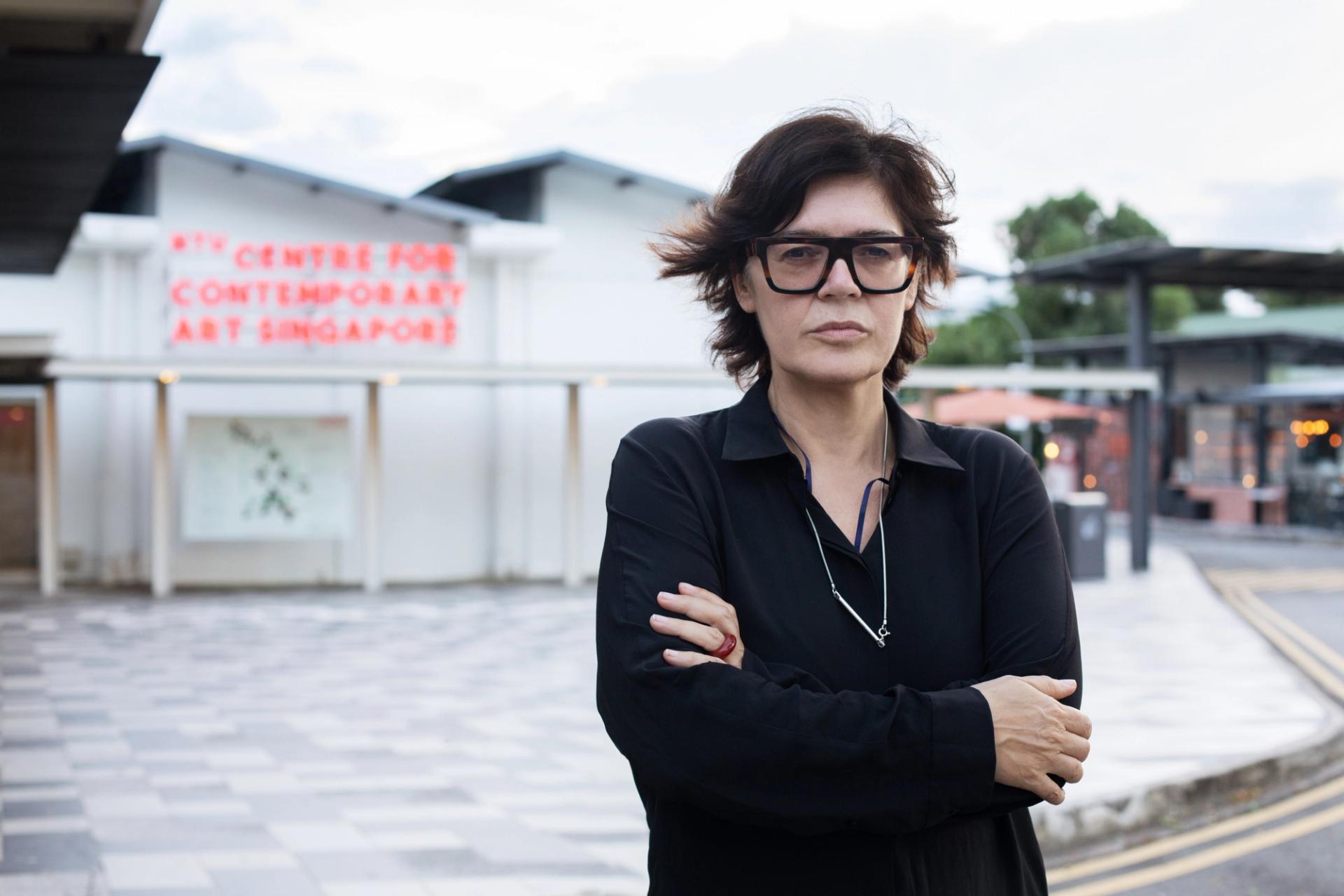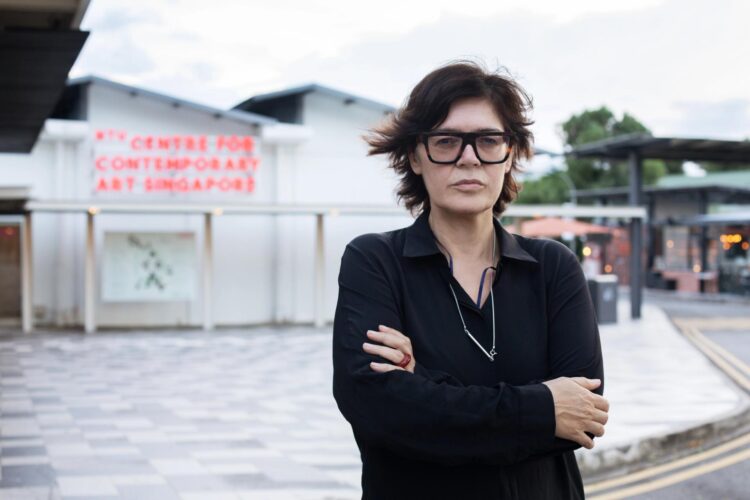The drive to promote the cultural credentials of Saudi Arabia continues with the launch next year of the second edition of the Diriyah Contemporary Art Biennale. The 2024 biennale will be led by the German-born curator Ute Meta Bauer who will serve as artistic director. The biennial on the outskirts of Riyadh, entitled After Rain (20 February-24 May), is due to feature 92 artists from 43 countries, including 30 artists from the wider Gulf region. Participating Saudi artists include Asma Bahmim and Abdulrahman Al-Soliman.
Speaking to The Art Newspaper, Bauer explains the title, saying: “If you live in an oasis or in the desert, if it’s raining, it immediately has an impact because nature is so ready for it, for every drop of water. It’s this moment of being nurtured and for me, it’s also a moment of hope.”
A number of new works have been commissioned for the biennial including a joint work by Ahmed Mater of Saudi Arabia and the Berlin-based photographer Armin Linke who are collaborating on a project documenting “Saudi futurism” since the 1940s. “The moment oil was found (the resource was first discovered in Saudi Arabia in 1938), suddenly Riyadh expanded,” Bauer says, adding that both artists have conducted research in the archives of the mega petroleum conglomerate Aramco.

Portrait of artistic director Ute Meta Bauer.
Photo by Christine Fenzl, courtesy of the Diriyah Biennale Foundation
“Aramco became a driver of culture very early on, so [there are] these connections of infrastructures… it’s always very interesting to see this through the lens of artists. It’s interesting with Ahmed Mater coming from the inside and Armin coming from the outside. We have quite a number of partnerships with perspectives from an artist outside working on a similar topic and an artist working within; what dialogue could they unfold together?” Bauer says.
The Yemeni artist Sara Abdu, aged 30, will create a series of towers constructed from artisanally produced bars of soap, reflecting cleansing rituals in the region while communal gatherings will anchor the event through the holy month of Ramadan, encompassing a juice and tea bar set up by the group NJOKOBOK (Youssou Diop and Apolonija Šušteršič). Artists Lucy + Jorge Orta will also invite members of the public to eat and drink together in a participatory meal around the alleyways of the Jax district near the biennale site.
The biennial will also look at environmental concerns, a project statement says. “I see here a shift [in the Middle East] from identity politics to environmental urgencies, which is very interesting. The practices have shifted; of course you cannot separate the climate urgencies from geopolitics,” Bauer says.
Bauer is also tapping into an older generation of artists in the biennial: Abdulrahman Al-Soliman is aged 69 while Sudan’s Ibrahim El-Salahi is 93 and Palestinian artist Samia Zaru was born in 1938. “I think it is important to also stress continuity; it’s not like nothing happened before,” Bauer says.
Asked about Saudi Arabi’s concerning record on human rights meanwhile, Bauer says: “I think one should actually ask that [about] every country? Of course I’m aware [of the issue], but I see the same literally happening everywhere. It’s very important to see the country opening up and to really see where is it going.”
She asks: “Is it only an economic opening [up]? Can I connect some of the artist voices outside with some of the voices inside? Can they together contribute maybe to a more complex understanding of the country? What I see is that it looks different from the image I had on the outside.”
The inaugural edition of the Diriyah Biennale in 2021, Feeling the Stones, was curated by the Beijing-based curator Philip Tinari; the event was initiated by the Saudi Ministry of Culture and is organised by the Diriyah Biennale Foundation which also oversees the Islamic Arts Biennale held earlier this year. “These biennales will showcase some of the world’s leading artists [and] drive cultural exchange between the Kingdom and international communities,” a foundation statement says.
The Kingdom’s aim to rapidly reposition itself as a cultural destination continues apace with numerous other arts projects in the pipeline, including the inaugural Riyadh Street Art Festival (15 November-6 December) curated by Cedar Lewisohn and the artist Basmah Felemban.
In the wake of Israel-Hamas war, creative industries operating in the Middle East have seen events postponed or cancelled. Asked though if the biennial will still go ahead, a spokesperson says that the event will “definitely” take place.

